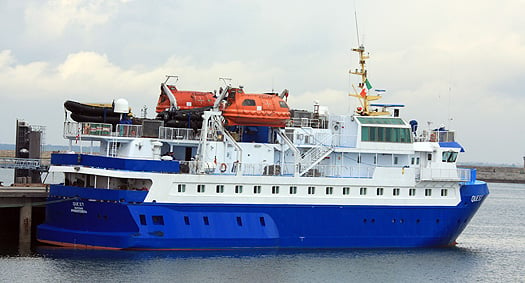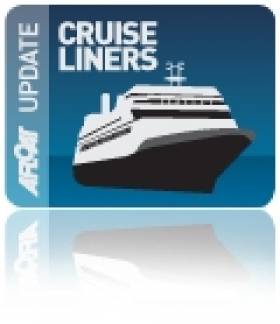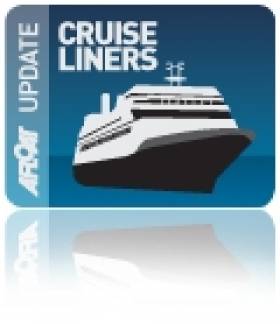Displaying items by tag: MVQuest
Cruise Call Opens New Opportunities for Dun Laoghaire Harbour
#CRUISE CALLS - The docking of the Quest in Dun Laoghaire Harbour this morning marks the first phase of cruise calls this summer as part of a new development to attract cruiseships, writes Jehan Ashmore.
The opening of the cruise sector business which formed part of the Dun Laoghaire Harbour Company's Masterplan is seen as a significant boost to the local economy considering the declining operations of the HSS fast-ferry service in recent years.
The Quest which is operated by Noble Caledonia is on a 9-night 'Garden' Cruise of the UK and Ireland, where prices started from £3,295. She berthed at the Carlisle Pier where for many generations passengers boarded the mail-boats followed by the conventional ferry to Holyhead which last left the route in 1996.

Quest along side in Dun Laoghaire. She carries 50 passengers
At just under 50m long the Quest carries only 50 passengers though this number is set to increase when a further four cruise calls are scheduled this season with larger vessels capable of carrying around 500 passengers.
#CRUISELINERS – The Quest (1992/1,180grt) an ice-strengthened expedition cruiseship, will have the distinction of being the first cruise caller to Dun Laoghaire Harbour in many years. The cruise call next week (24th April) will mark a new era in attracting the cruise sector as part of the harbour's masterplan launched last year, writes Jehan Ashmore.
The Quest will have a German clientele of around 50 passengers, though other larger capacity vessels are scheduled for the summer in this first phase of cruise callers. The cruise sector season is seen to be a significant economic boost to the local economy considering the reduced ferry side of the harbour business in recent years.
Passengers on the Noble Caledonia operated vessel are to take a 9-night 'Garden' Cruise with prices starting from £3,295. She is to set sail from Oban Scotland, then to Ireland, Wales, Cornwall, the Isles of Scilly and Channel Islands.
On her Dun Laoghaire call passengers will head for Powerscourt and nearby Mount Usher gardens in Co. Wicklow. On the second Irish port of call to Waterford as previously reported, they will visit the privately owned Mount Congreve Gardens on the banks of the River Suir.
Notably scheduled in for next year's season is the 'flagship' of the Cunard Line fleet, the 2,620 passenger liner Queen Mary 2, all of 151,400 gross tonnes. She is to make an anchorage call in May 2013, according to Captain Frank Allan, Dun Laoghaire Harbourmaster.
As part of the programme to attract and develop Dun Laoghaire as a cruise call port of call, a new tender docking facility was recently completed. The facility is designed to cater for large cruiseships using the harbour as it will cater for easier access by boats tendering passengers to vessels such as Queen Mary 2 during anchorage calls out in Dublin Bay.
The new tender facility will also benefit the public as the facility can be used for training purposes and for the operation of boat tours around Dublin Bay and trips out to Dalkey Island.
- Dun Laoghaire Harbour
- Cruise Liners
- Irish cruise calls
- Noble Caledonia
- MVQuest
- Cunard Line
- Queen Mary 2
- QM2
- Dun Laoghaire Harbour Company
- Dublin Bay
- Dublin Bay anchorage cruise calls
- Dalkey Island
- Powerscourt Gardens
- Mount Congreve Gardens Waterford
- River Suir
- Dun Laoghaire Harbour Masterplan
- Dublin Bay News

























































